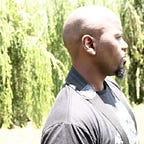Time And I Against Any Two: The Last Stand of Walter Scott
“I determined that literature,” wrote 20th century writer Walter Scott, “should be my staff and not my crutch. And that the profits of my literary labour, however convenient otherwise, should not, if I could help it, become necessary to my ordinary expenses.”
He resolved that he should earn his living solely by business, and not by words, so as not to hate the passion that he had so come to love. He succeeded well in business and thus freed himself to passionately indulge in his writing, which brought him significant fame and status.
He produced many literary works, owing it to his punctuality which was one of his most carefully developed habits. He made it a habit to respond to every letter he received on the same day, unless further investigation and discussion were required. It was his custom to get up around five o’clock in the morning and light his own fire. He shaved and dressed, and was seated at his desk by six o’clock, his papers neatly organized in front of him, his reference books set around him on the floor, and at least one favorite dog lying outside the line of books watching his eye.
Thus, by the time the family had gathered for breakfast, between nine and ten in the morning, he had done enough to “break the neck of the day’s work,” as he put it.
Fate played a cruel trick on him, however, for at the young age of 54, a UK-wide banking crisis resulted in the total collapse of his printing business, of which he was the sole partner with a financial interest. The company’s debts of £130,000 (equivalent to £12 million today) caused him great financial ruin.
Being a man of honor who abhorred debt, however, he committed to pay it all to the last cent, resolving to “write my way out of it,” so that all of his current and future earnings in royalties would go to his creditors.
“It is very hard,” he said of the whole situation, “to lose all the labour of a lifetime, and to be made a poor man at last. But if God grants me health and strength for a few more years, I have no doubt that I shall redeem it all.”
He turned down all offers of financial aid from fans, supporters and admirers, including King George IV himself who was an admirer of his, “No, no, gentlemen,” he said to all, “time and I against any two.”
And so it was. He next sold off all his mansions and assets, followed by all other personal effects, and committed himself to pay a certain amount of his liabilities to his creditors each year.
Now, what had once been a most pleasant pastime and hobby became a most dreadful burden. For the next five years would see him produce over twenty-five works of literature, including seventeen books and novels. He wrote in the midst of great distress and pain, for the great toll of his commitment took a burden on his physical health.
Too much work and no moderation was becoming the death of him, however, as he suffered several strokes in that time period which left him partially paralyzed and bedridden for several months. But as soon as he recovered he was always ready to jump right back to his work with whatever little strength he could muster, often against the express instructions of his doctor.
“If I were to be idle,” he said on many occasions, “I would go insane: death is nothing to be afraid of in comparison to this.”
Towards the fifth year of continuous efforts, he had now managed to pay off over two-thirds of his debts, the modern equivalent of £8 million — an achievement unparalleled in the history of literature at that time.
A year later, at the behest of his closest friends and family who had seen his health rapidly declining, he took a much needed break and set off on a several-week boat cruise through the Malta and Naples regions. As one of the most famous men in that time, he was naturally recognized everywhere he went.
This trip however, would be his last, for on his return trip home, he suffered his most severe stroke yet which left him contorted, paralyzed and bedridden, barely able to move. Over time, he slowly recovered the use of some of his motor functions but could not bare the slow process that the recovery was taking.
In the last year of his life — while sitting for a long time dozing on and off in his chair on the grass in front of his house, he suddenly got up, threw the blankets off of him and shouted, “This is sad idleness. Take me to my own room and fetch the keys to my desk,” — exhibiting a trait shared by many men of great achievement in that idleness utterly bores them, they must be constantly preoccupied with some form of creation or another.
So they wheeled him into his study and put a pen and his writing pad before him. But despite how hard he tried, he could not grasp the pen; he could not write a single word; and after half an hour of determined effort, streams of tears began rolling down his cheeks.
His spirit had now been broken; because no matter how much his heart was willing, his body was not, and his physical strength was all gone. He suffered a final, major stroke from which he did not recover and died in his sleep later that year at the age 61.
Although he died still owing money, his books continued to sell and the debts of his estate were discharged the following year, 6 years after the banking crisis.
Read more in my new book! The Trials And Triumphs of Hyperachievers
